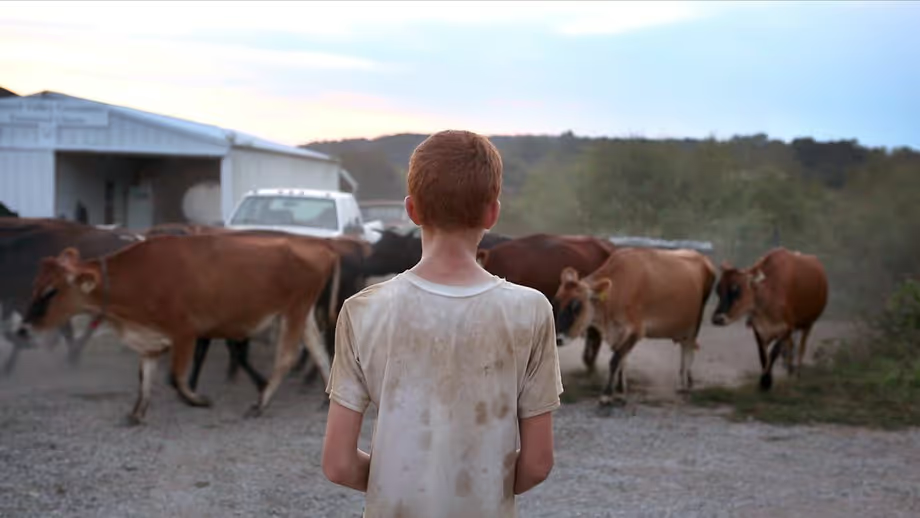Farmsteaders: Discussion Guide
Letter from the Filmmaker

I am one of them. I grew up on a homestead in rural Ohio, the heartland of America – a kid of homesteaders, reinventing their suburban lives: raising hogs, growing heirloom tomatoes, defying the expectations. As I transitioned into adolescence, I watched as one after another our neighboring farms were forced to sell. The land grew fallow until it was either completely forgotten or turned into sprawling suburbs, full of cheaply built houses, with cupboards and refrigerators full of cheaply made food. It crushed something in me. My twenties were a spiritual quest to document humanity’s entangled relationship to the land.
When I began filming the Nolans in 2011, it felt like home. As the project developed, I made a conscious choice to continue filming solo to maintain a quiet, unobtrusive presence with the Nolan family. This approach allowed me to film the intimate, unguarded moments: Nick sick in bed, Celeste crying as she reaches her breaking point, the kids lost in their play and wonder. Throughout filming, they knew that I understood the weight of the struggles, as well as the bliss in between. With ease, we talked farming and factories, beauty and loss. They trusted me to understand and to translate the nuances of their lifestyle, their sacred relationship to the land, and their Sisyphean effort to survive as a small sustainable farm in today’s corporate climate.
Only one percent of Americans are farmers. Our food industry is largely insidious and unethical, built as an extractive industry chock full of human, animal and environmental rights issues. Many Americans are nostalgic for the farms that live in their childhood memories but are unaware of how tenuous our food system actually is. Layer that misunderstanding of rural America on top of our current political climate, and you end up with an uninformed and narrow view of the majority of the country. This story is the antithesis of the exhausted “Trump country” narrative. Nick and Celeste’s meditations on life, legacy, and resistance offer an unexpected voice at a time when the country is so deeply divided. With much of the current rift falling along demographic lines, there is an escalating clash between the two Americas. And yet here this family stands in contrast to all of our expectations – heroic, benign, accessible.
This is a story about my home as much as theirs. And it’s the story of many Americans straining against the ebb and flow of an uncertain economic system. I made this film to exalt the farmer, to challenge the stereotype, to celebrate the working class hero – the one who fights for sovereignty of labor and mind.
Sheana Mallett, Director
